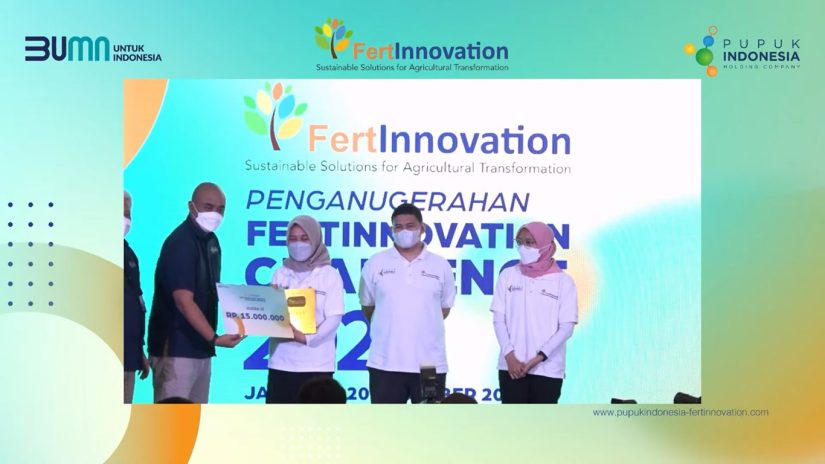
Yogyakarta, March 30th 2022─A student from the Faculty of Social and Political Sciences (Fisipol) UGM made achievements in the “Pupuk Indonesia Fertinnovation Challenge 2021” competition organized by PT Pupuk Indonesia in collaboration with State-Owned Enterprises (BUMN) on August 20th to December 20th, 2021. Saffanatul Afifah, a 2018 student from the Department of Public Policy Management, won third place in the Innovation in Agricultural Value Chain competition category.
“As a social and humanities student who doesn’t know anything about agriculture and only has anxiety about issues that surround us, being able to win is a great achievement in my opinion with existing limitations, and I am grateful to be given the opportunity to continue to learn with all the insights I can get,” Saffana said.
The scientific paper that was contested with the title “Digital Platform for Ugly Food and Online Advocacy Campaign Using Meme Marketing in Efforts to Improve Agricultural Value Chain and Reduction of Food Waste in Indonesia” started from the concern about environmental issues in Indonesia. Saffana found the fact that the majority of waste production in Indonesia is organic food waste which is still fit for consumption but does not meet aesthetic standards.
“Here I call it ugly food, in the sense that it is still very suitable for consumption in terms of nutritional content or taste, but the shape is not aesthetic (beautiful). For example, a good carrot is long, large, and straight, but if it branches or turns, it tends to be disliked by buyers and the majority is wasted,” Saffana said.
Furthermore, the problem becomes more complex when many distributors are concerned with best quality conduct due to pressure from consumers. They are required to have quality control to ensure that the products they sell—vegetables and fruit that are sold look good. From this, an understanding arises that if the product is not of the best quality, then the product is not demanded by consumers, thus triggering producers to throw it away.
Saffana revealed that as much as 40 percent of waste is produced from something that we can actually eat, but ironically, many people are starving. “We are not actually a shortage of food, but a lack of a proper distribution system, and this is exacerbated by the misconception that food that is good or suitable for consumption is food that is pleasing to the eye,” Saffana said.
Armed with the above problems, Saffana wants to develop an innovative digital platform that will oversee the process of distributing the ‘ugly’ food itself later. The business model received support from the competition organizers in the application launching process. However, it certainly requires a long process of mapping the ‘ugly’ food supply first.
